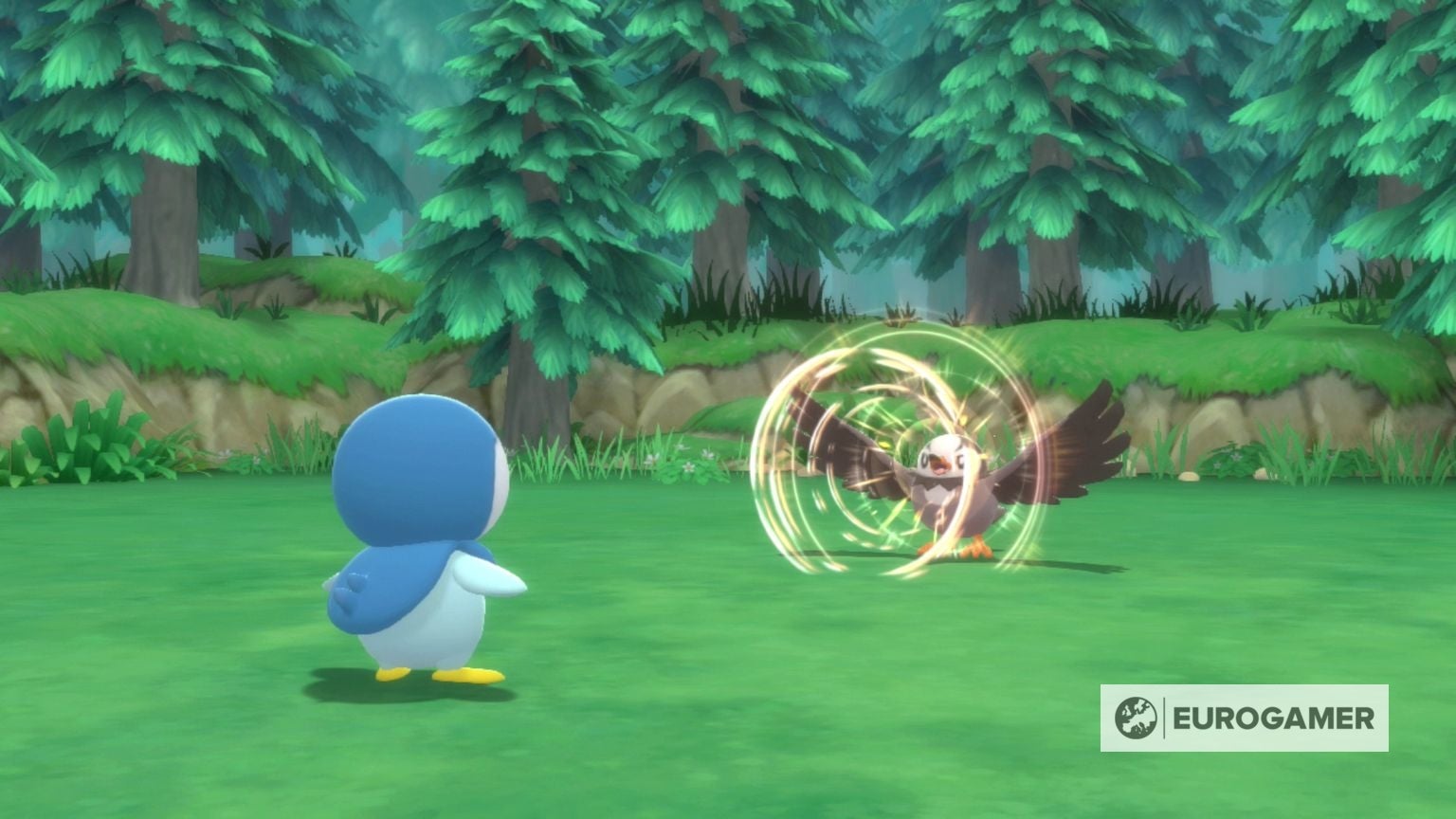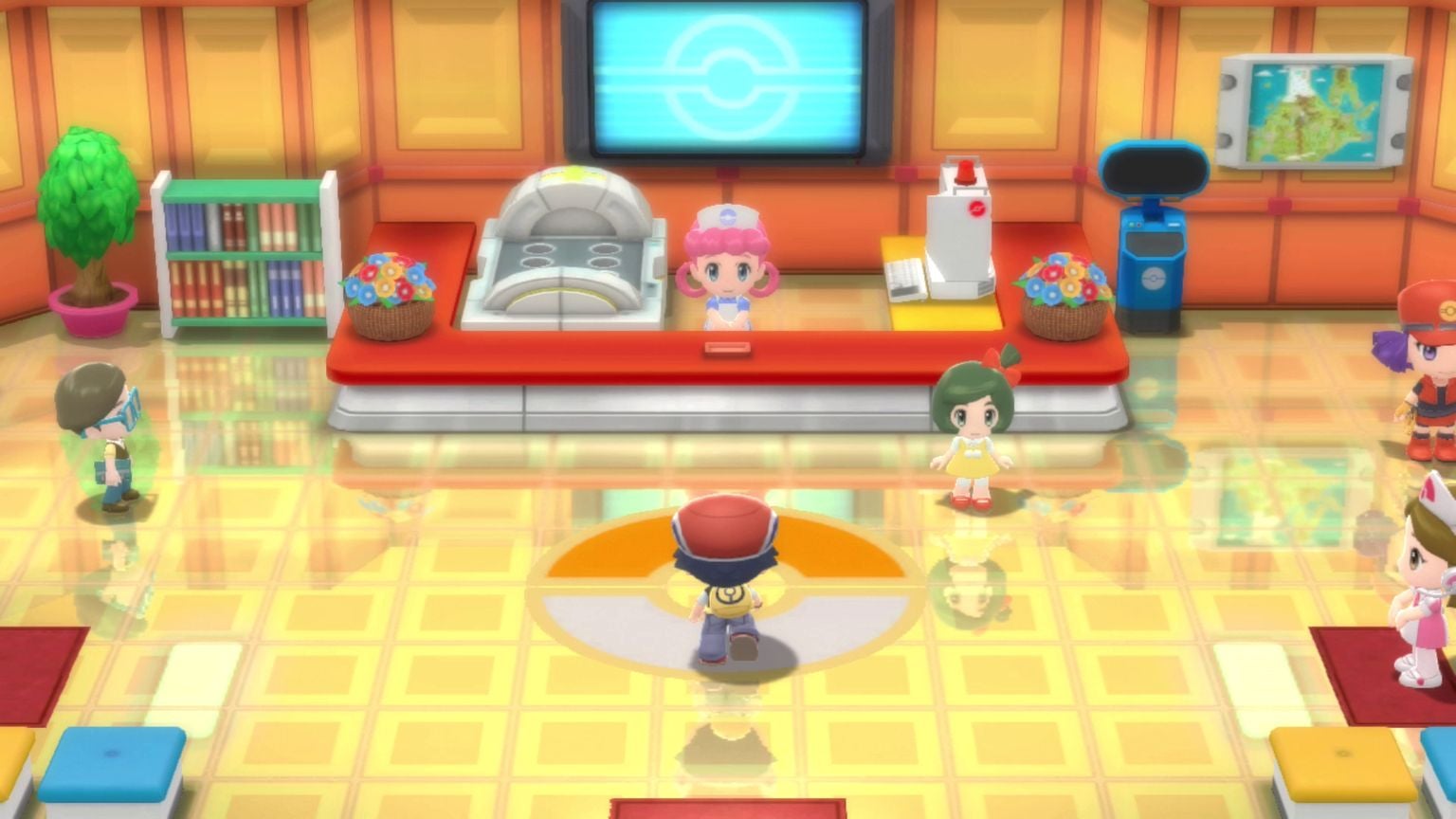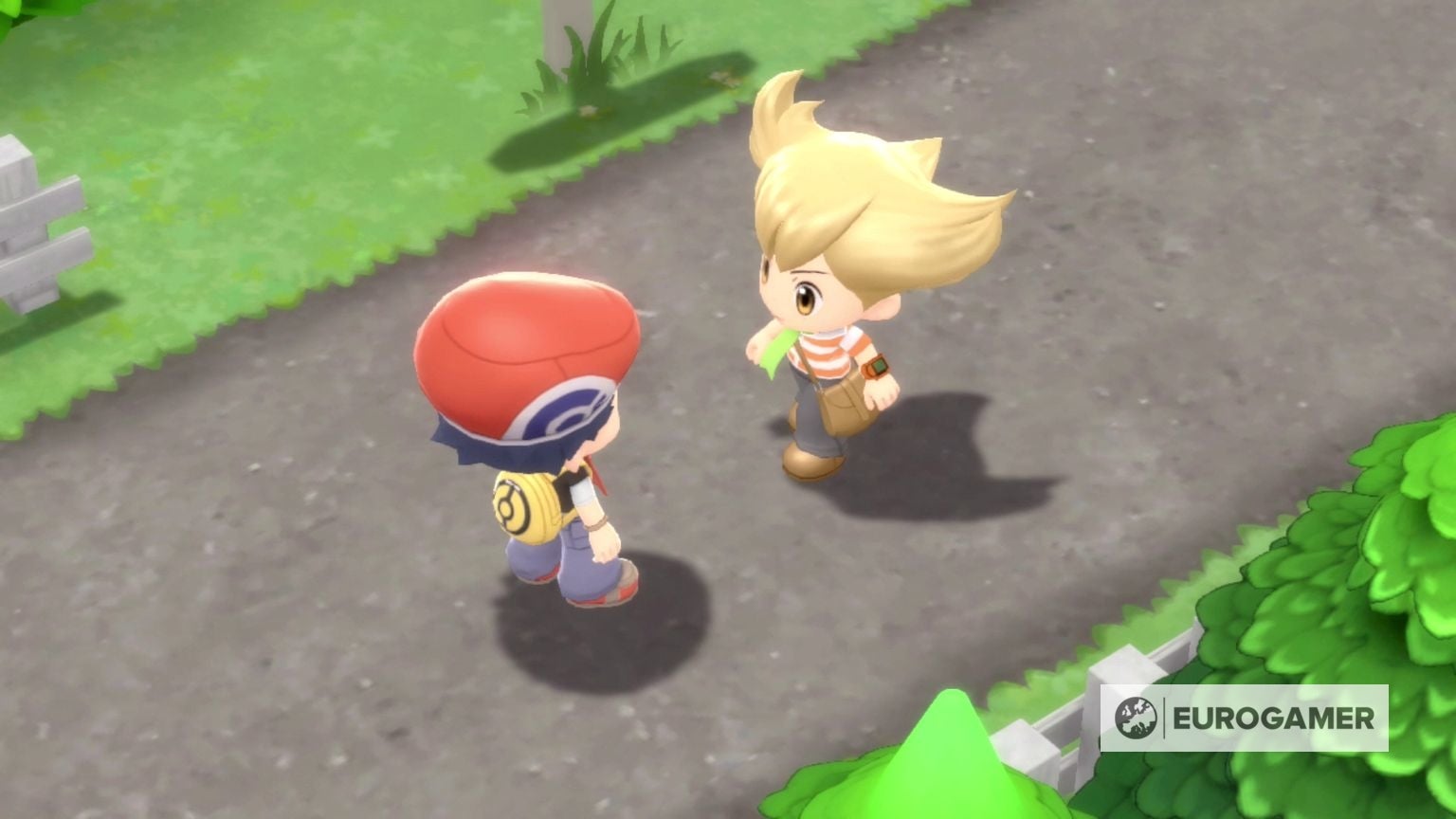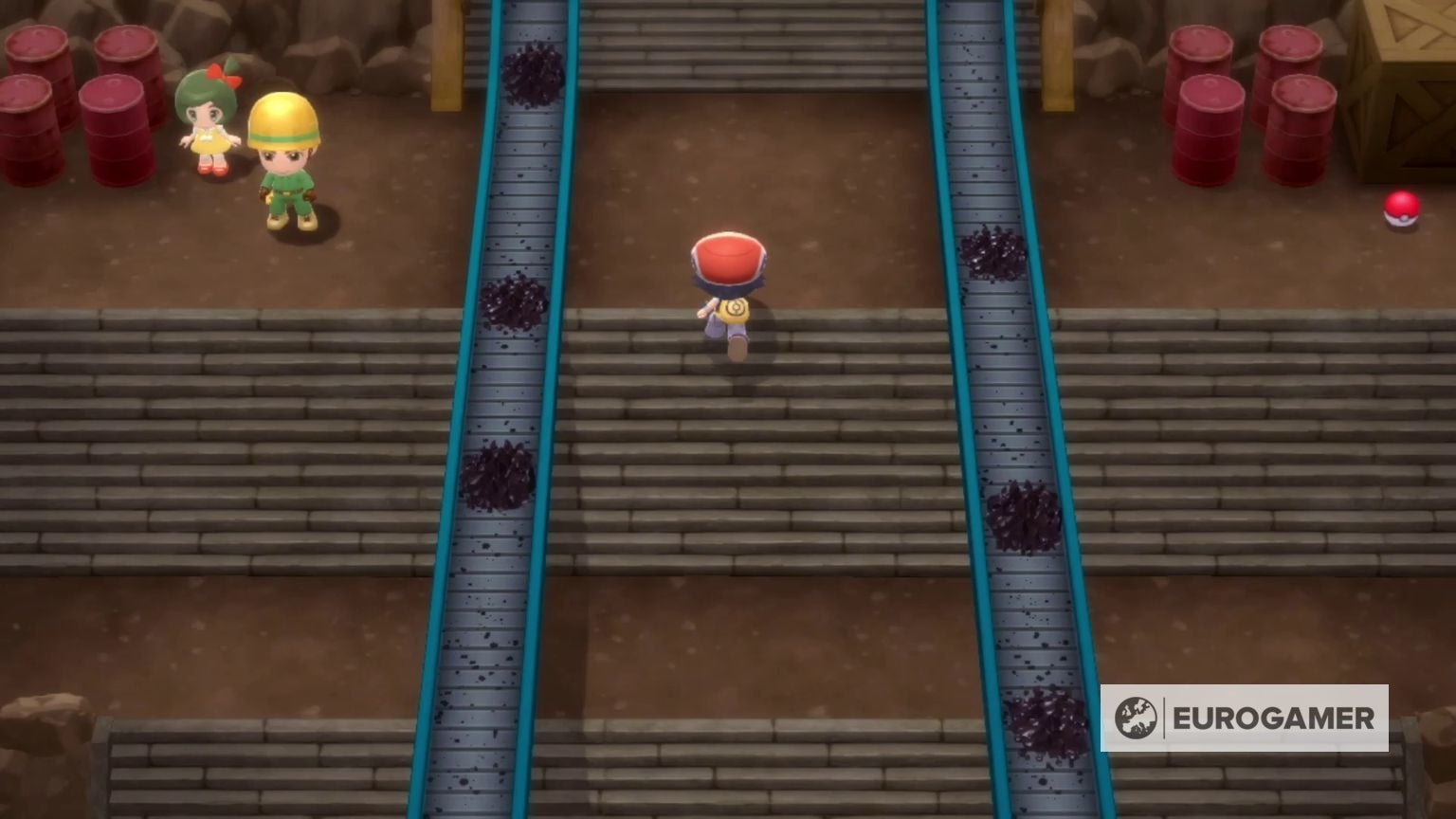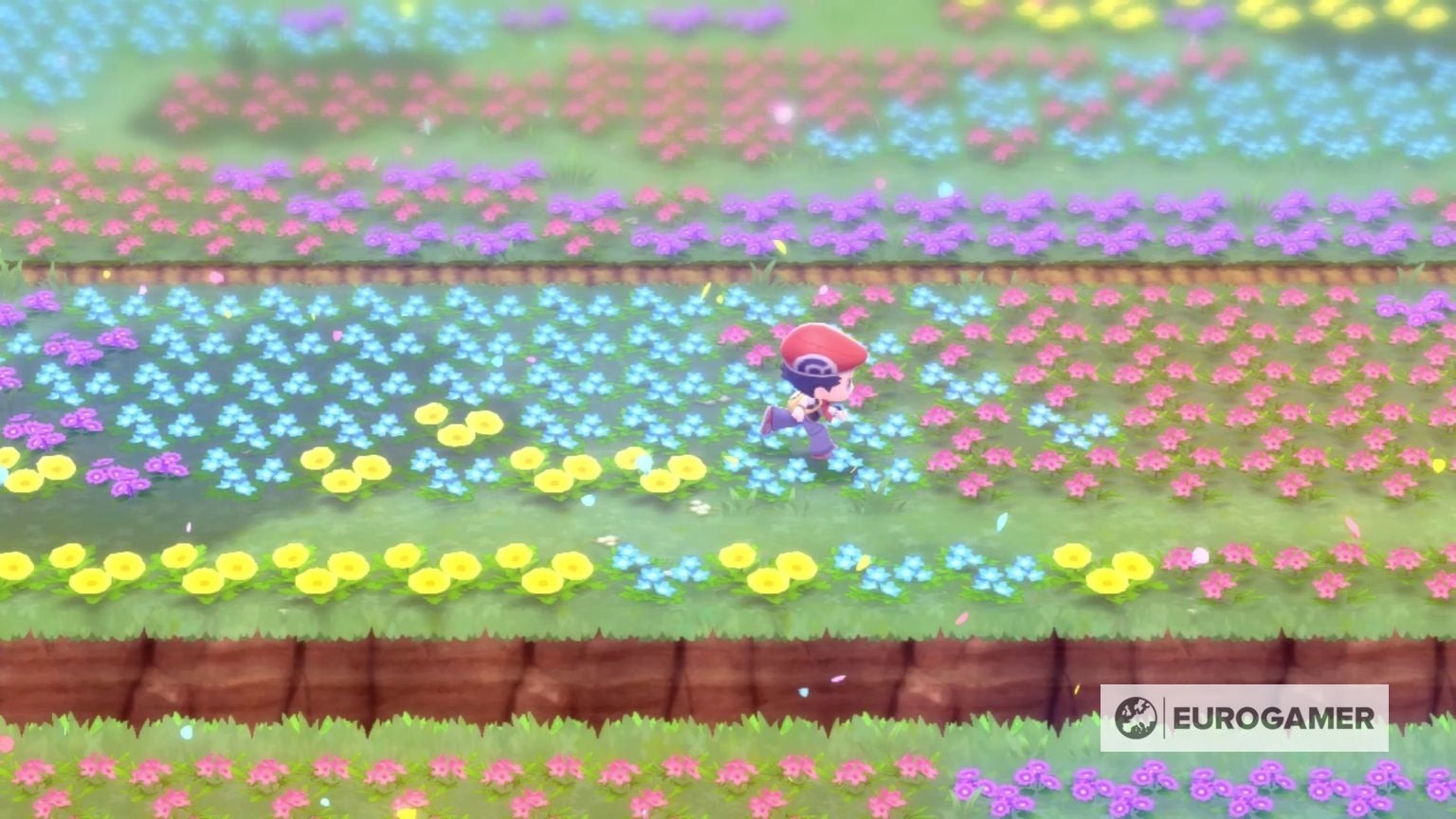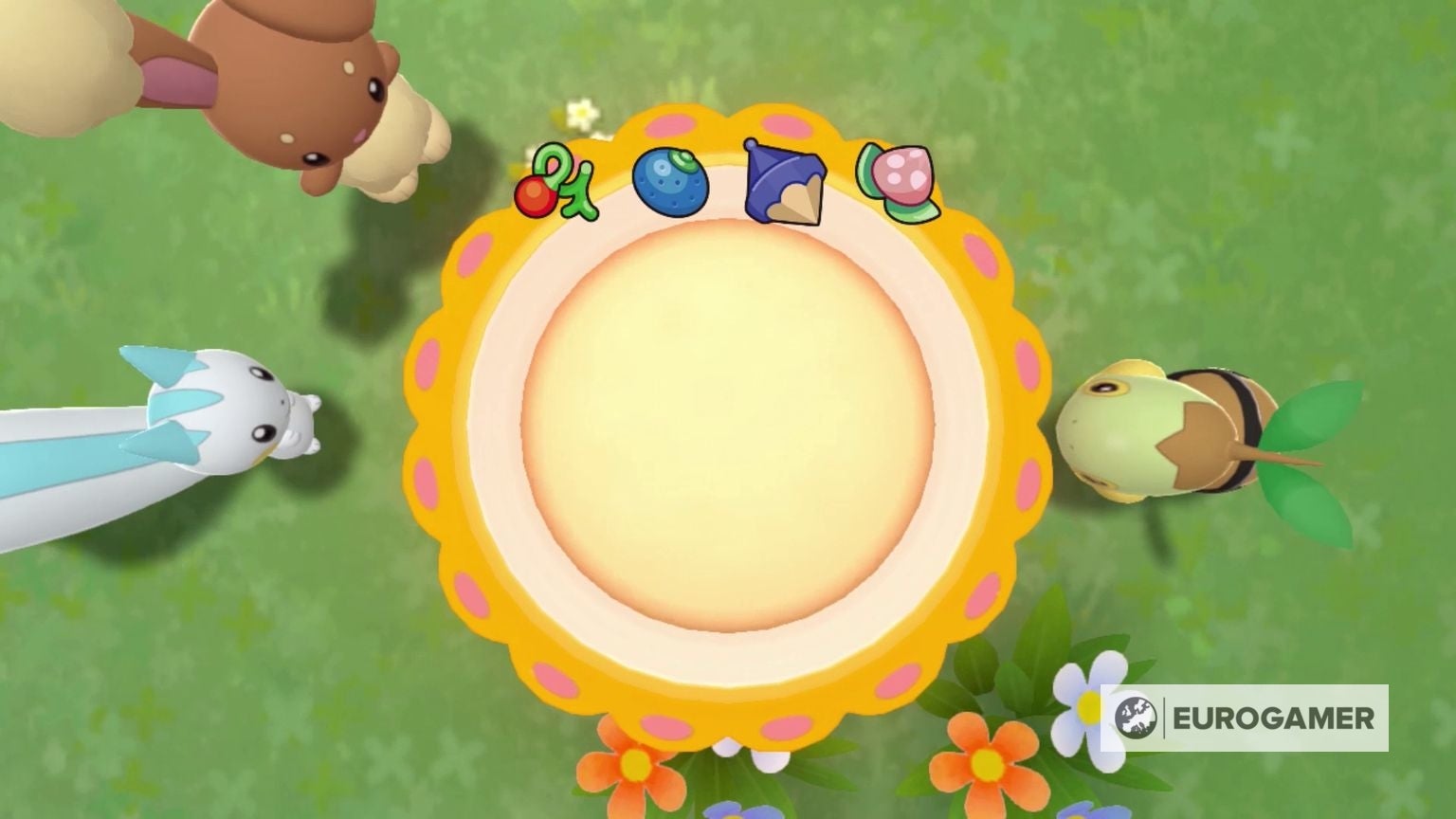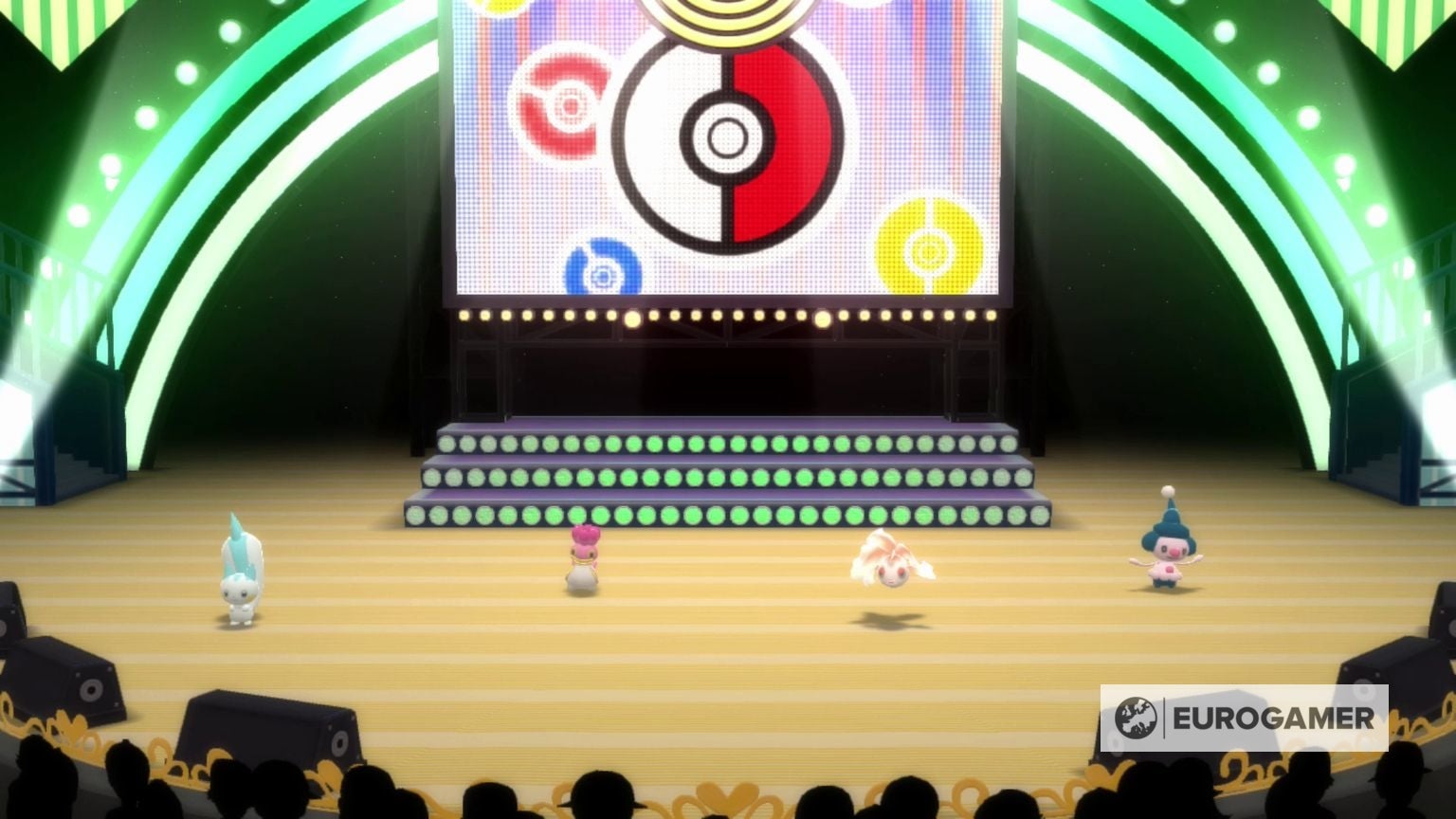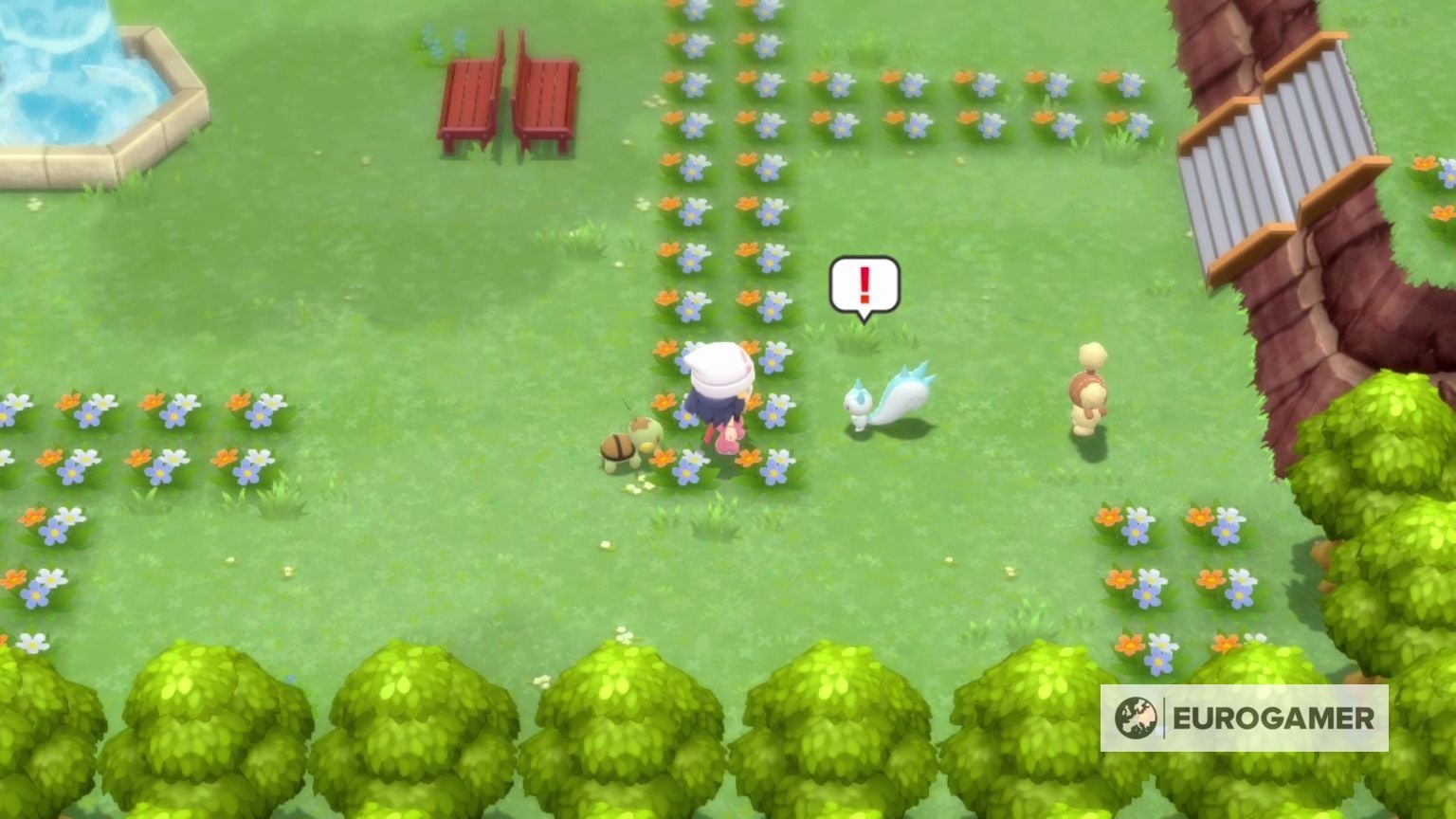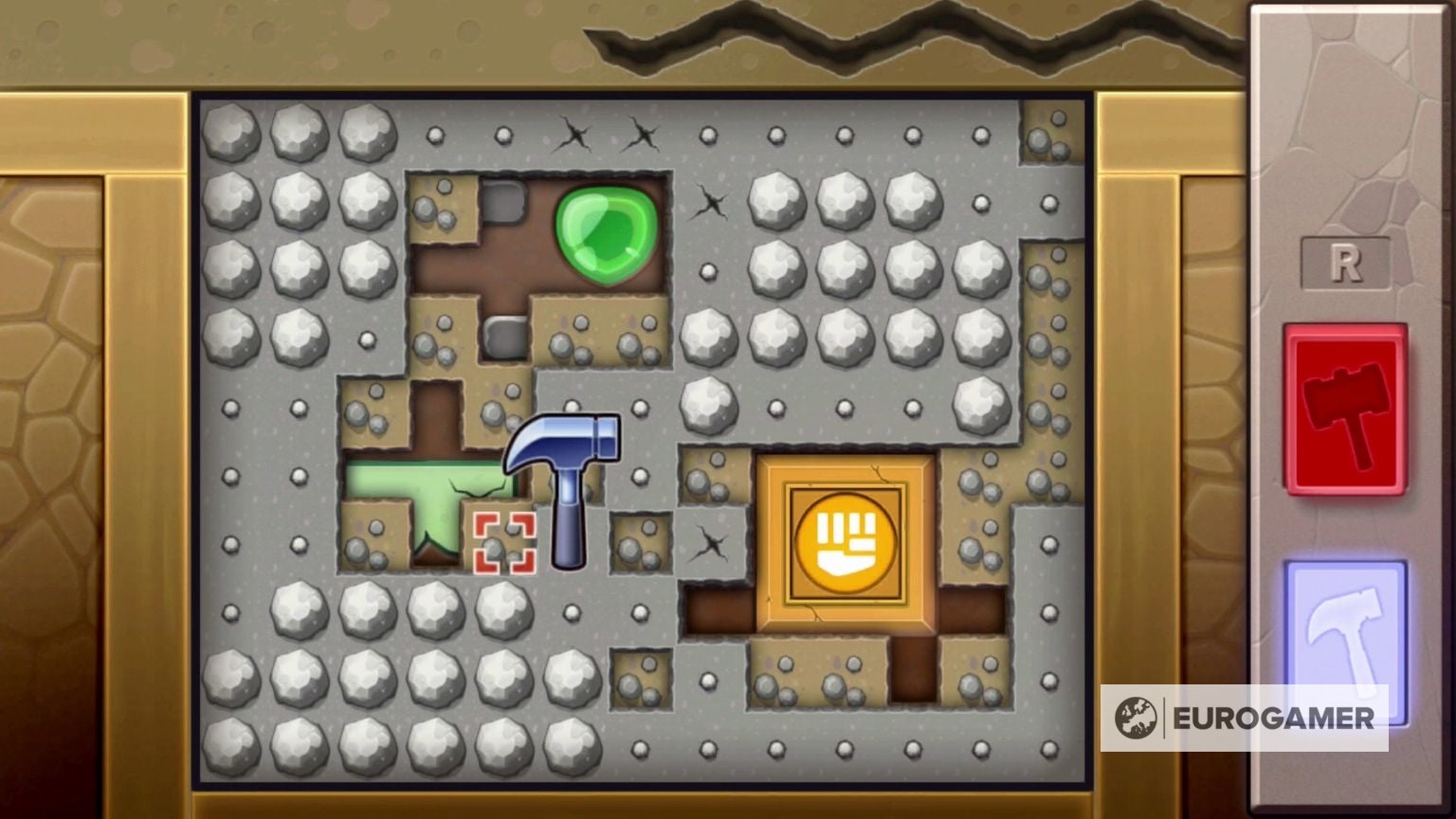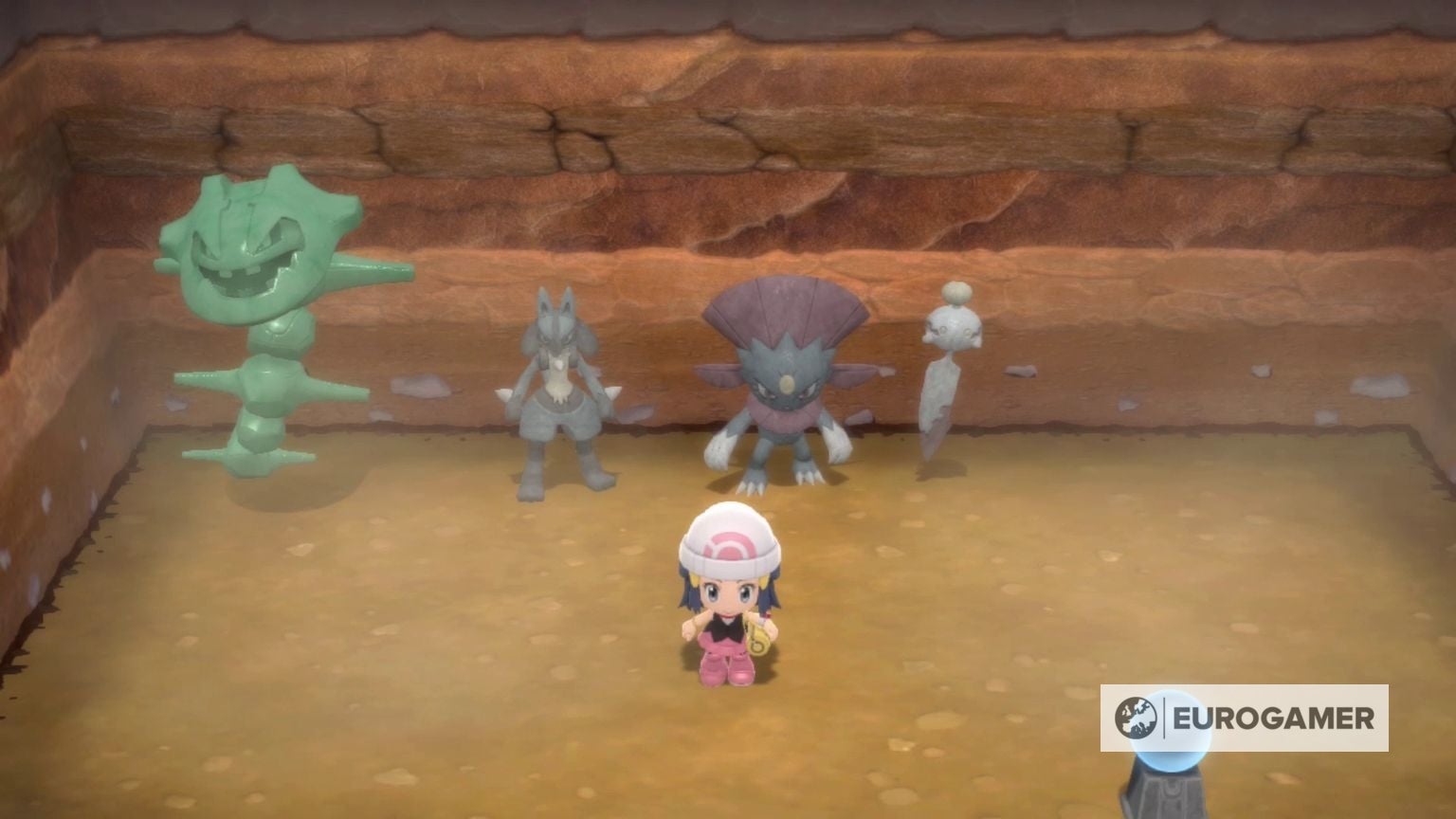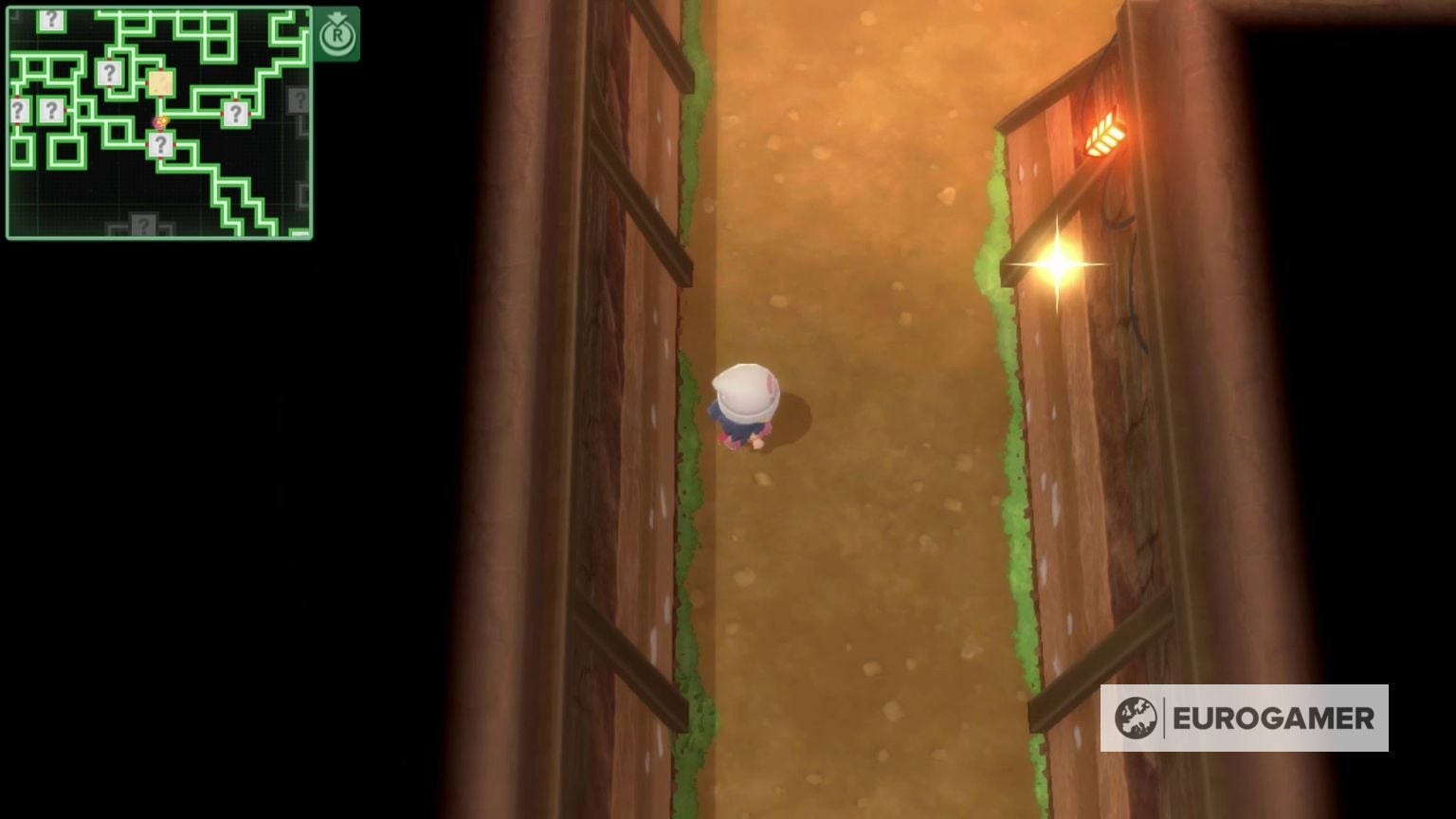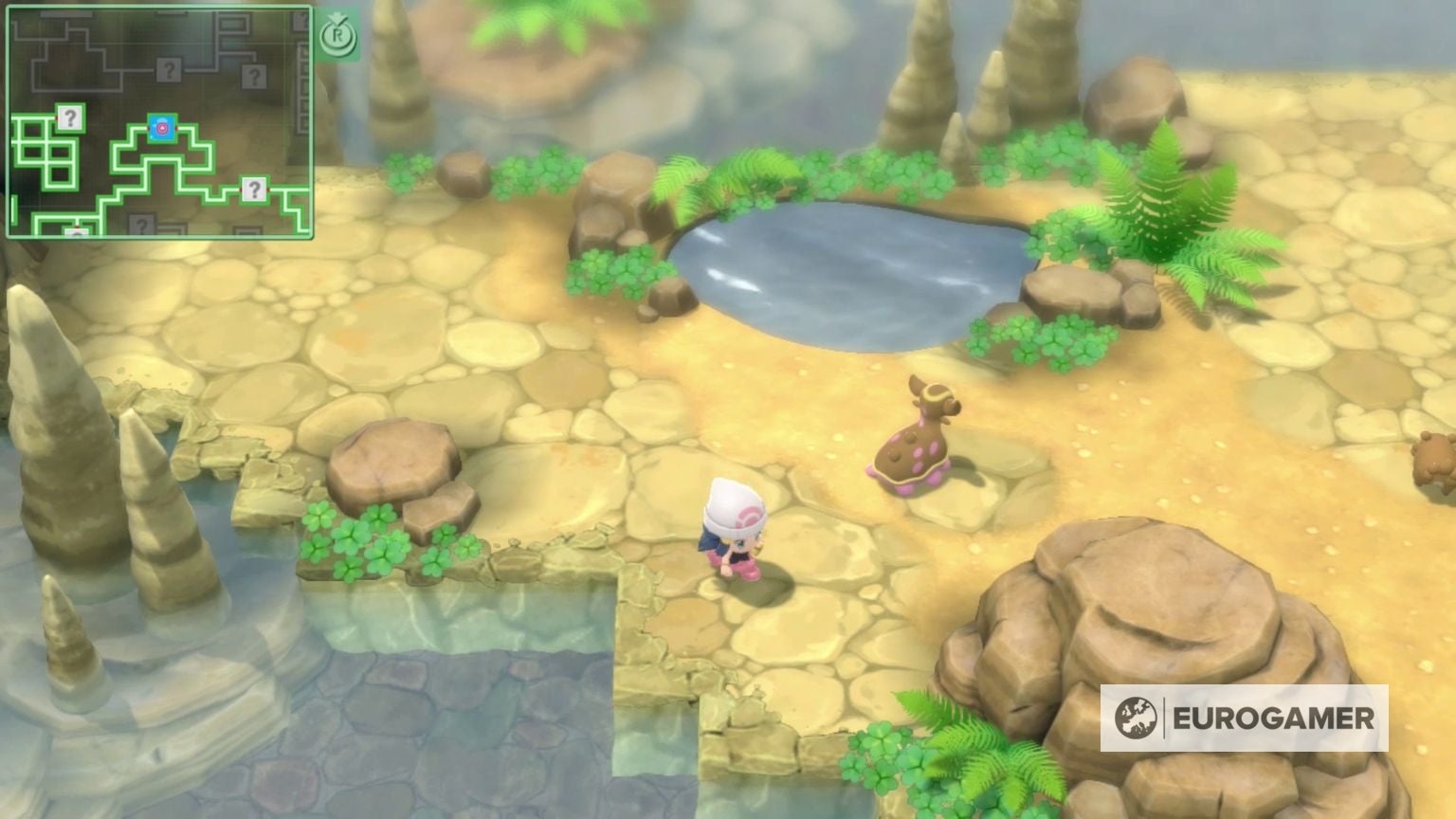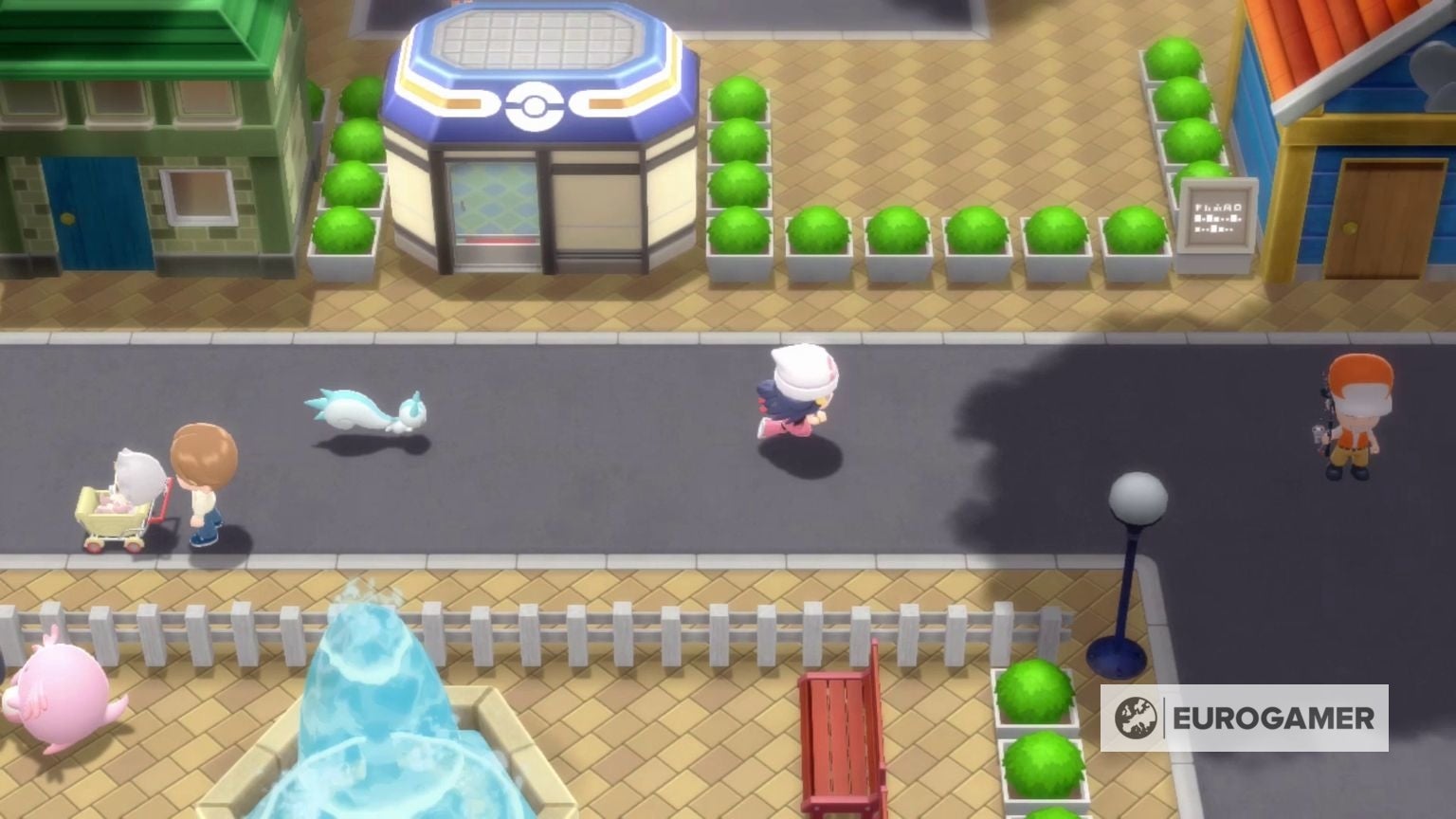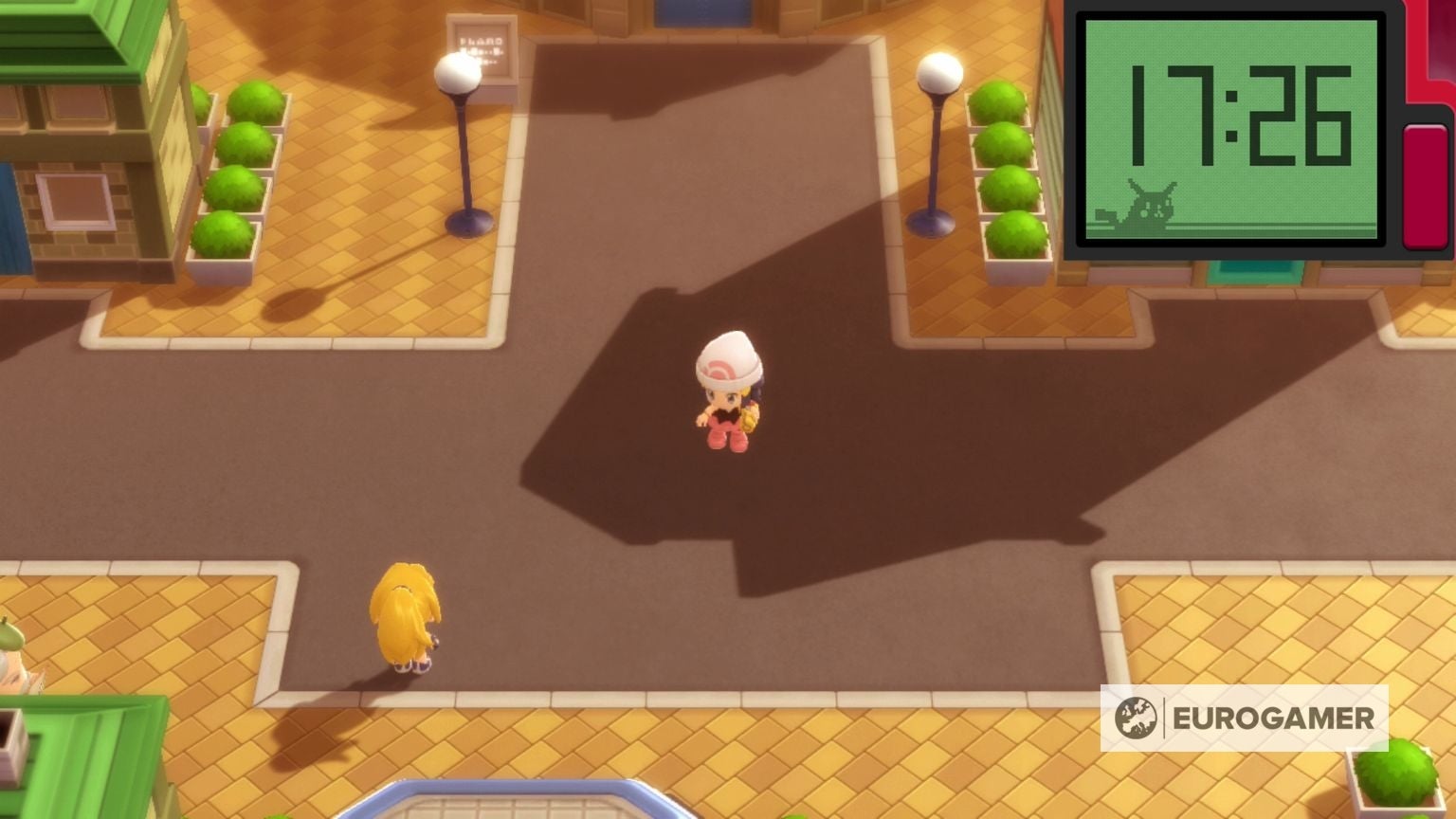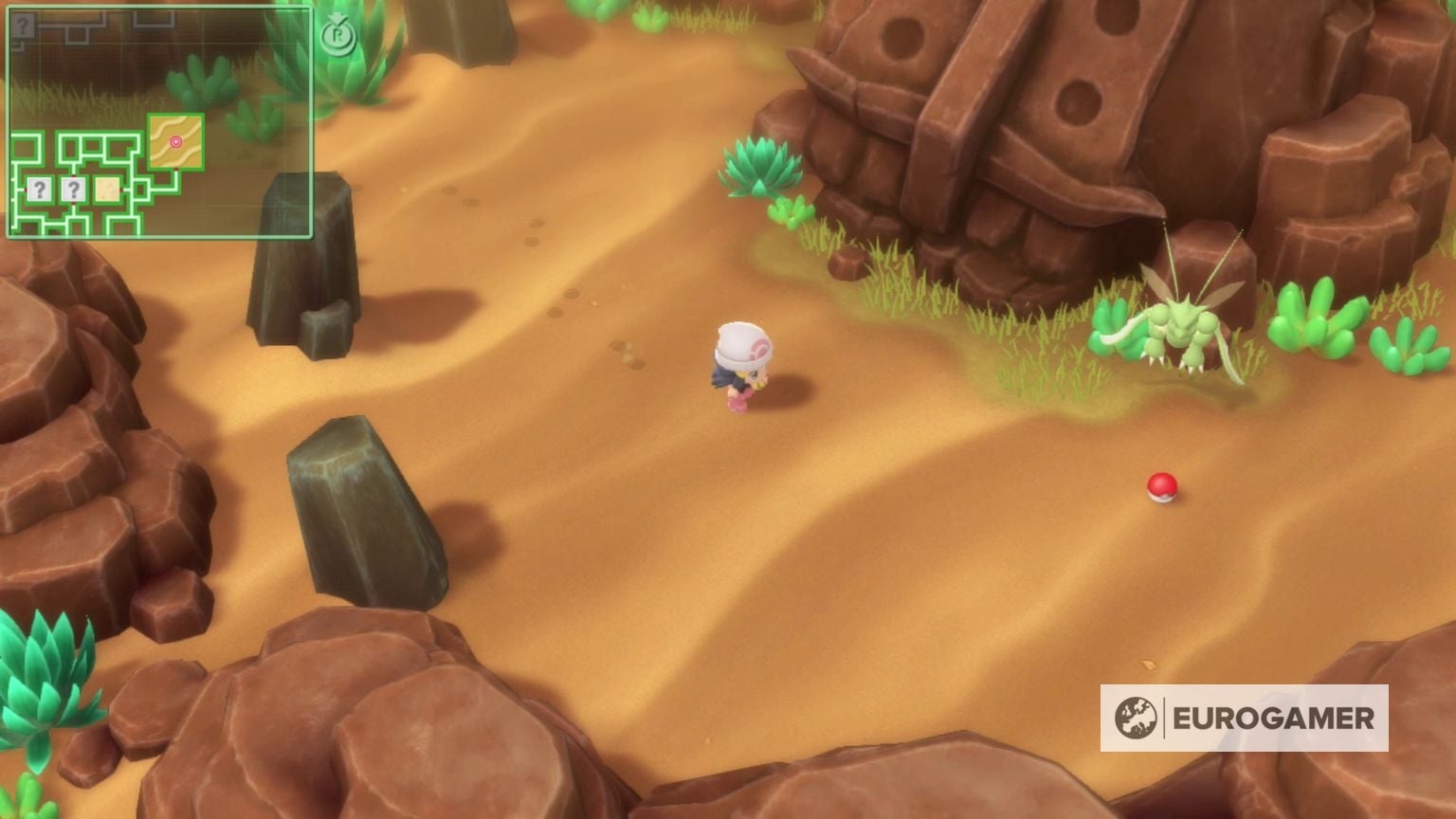Of course I know this - the Pokémon Company did not hoist it’s brand to the top of the highest-grossing media franchise lists by playing down the snuggliness of a Pikachu - but it’s weirdly easy to put out of your mind when thinking about the main series games. Generally, people get into Pokémon when they’re still a child, and so the games - whichever they play first - tend to feel big and imposing. Challenging, even. This is what sticks with you as “your” idea of Pokémon, and it’s what sits at the front of your mind during its quests to become the very best, to topple leagues and champions and evil organisations again and again. But, it is also very cute, and this is what sets the Diamond and Pearl remasters apart from the rest in that main series: their rounded, squishy-plastic chibi look takes a pixel-and-sprite style that you could interpret however you want, and turns it into something definitive. This is pitched as a cosy game first, a heroic adventure second, and thinking about it that way makes Brilliant Diamond and Shining Pearl much easier to understand. Partly, it’s been difficult to know exactly who these remakes are for. The Pokémon Company describes its goal with these remakes as being “to make them feel fresh and exciting for veteran players, whilst providing an up-to-date and exciting experience for new players” too. In other words, they hope everyone will like them. And in practical terms, it means two things: that squishy new art style, for one (“a modern-day reimagining of our classic style,” as a Pokémon representative put it) and a selection of user experience updates - but not a huge amount more. Pokémon battles are much faster in the remakes than the originals, for instance, and simple things like the shortcut for throwing a Pokéball in wild encounters return from modern entries like Sword and Shield. More excitingly, as was teased in a recent trailer, HMs have changed a bit. These are now accessed via the Pokétch, which has been moved from the DS’ second screen to a pinnable overlay viewed in the corner of your Switch. It appears that your party Pokémon don’t need to learn HMs in order for you to use them in the overworld, as a result: the presentation showed footage of a trainer interacting with a smashable rock blocking their path, and a “wild Bidoof” appearing to smash it. An even bigger one comes via the Grand Underground. Like in the originals, this is a network of tunnels accessible beneath the overworld itself. There’s a tidied up, and oddly compelling-looking mining minigame for finding things like Secret Base decorations and useful Shards, but most importantly there’s an entirely new feature added here, called Hideaways. These are large areas with overworld encounters - as in, visible Pokémon walking around that you can run into to start a wild encounter, just like in Sword and Shield. The Pokémon that are technically available in Brilliant Diamond and Shining Pearl are the same as the originals - there’s no National Dex in this game - but now, many of the Pokémon that you could only obtain in the originals via trading are available to be caught in game, via hideaways. That’s a big deal for a few reasons, but the main one is that you can now finally get more than one Fire-type Pokémon early in the game - a weird balance oversight from the originals. The hideaways are themed, and a volcanic looking one is notably accessible quite early in the game. We saw an encounter with a wild Houndoom with the trainer’s Pokémon at Level 23, for instance. Which Pokémon appear in these hideaways seems to be dictated by the statues you place in your Secret Base, although exactly how that whole system works isn’t quite clear just yet (we briefly saw a bit of UI saying that a Statue’s Effect “Slightly raises the appearance of Steel-type Pokémon). Some Pokémon will be exclusively available via these Hideaways, although we weren’t able to get confirmation on whether the main overworld Pokémon’s locations had been remixed - as in, whether they appear in the exact same patches of long grass as the originals. One other thing related to hideaways: other trainers can join and run around with you in these areas, which is a nice nod to the originals’ big emphasis on online play, (which was a big deal way back in the dark ages of 2006). Back up on the surface, one major update is the Contest system. There’s more customisation than before, to both your trainer’s outfits and the decorations of your Pokéballs, which affect your Pokémon’s chances in the contests themselves. There’s a new rhythm game, which looks fairly simple, that takes place during a special dance round of the contests too, and Poffins, special items made from a specific mix of berries that impact certain contest stats like how ‘Cute’ or ‘Cool’ a Pokémon is, have been slightly revamped. There’s now a mixing minigame (which looks a tad long-winded) that’s reminiscent of the pot-stirring, curry-making minigame from Pokémon Sword and Shield. There’s a noticeable emphasis on this, and coupled with the much-anticipated return of follower Pokémon that run around behind you in the overworld (hooray!), it comes back to that big push for the cute, lifestyle-game angle for the remakes. A few other nice user experience updates. Brilliant Diamond and Shining Pearl will connect to Pokémon Home (developer ILCA actually worked on developing Pokémon Home too, funnily enough), meaning you can transfer Pokémon to and from Brilliant Diamond and Shining Pearl from say Pokémon Go, or indeed Sword and Shield - but only the ones in their regional Pokédex. Home connectivity isn’t coming until 2022, mind. There won’t be an official competitive scene for Brilliant Diamond and Pearl - and notably, a Pokémon representative also emphasised that there won’t be one for Pokémon Legends: Arceus either, as it’s a different kind of game to the likes of Sword and Shield. (Somewhat related to that, things like the relative “difficulty” of Brilliant Diamond and Pearl are still up in the air too - the Pokémon Company couldn’t fully confirm whether, say, trainer’s Pokémon appeared at the exact same level in the exact same place, and so on, but there definitely will be “tweaks”, they said, as things like Fairy-type Pokémon need to be added in. Although they did confirm it was very much based on Diamond and Pearl, plot-wise, as opposed to the enhanced version, Platinum). The lasting impression is of a fairly low-key remaster, as far as things go for Pokémon. It’s been obvious from the off that these aren’t on the same scale as the Omega Ruby and Alpha Sapphire ones, for instance, which remade the originals in the same exact style as the contemporary generations at the time. Instead, it’s a self-contained effort, made more welcoming to newcomers and modern enough for old-timers to maybe get a kick of nostalgia from a revisit. And that may well be enough.
